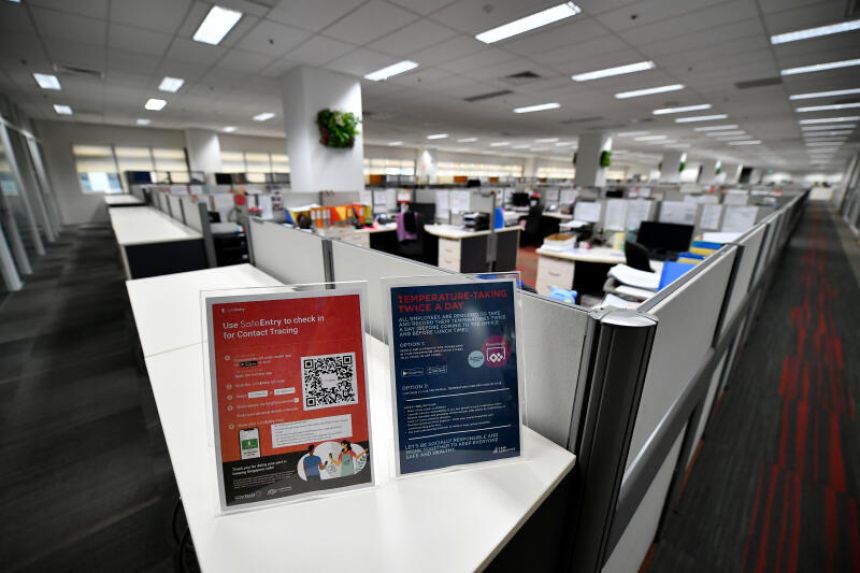Restrictions on work from office may be eased in phase 3, more updates soon: Josephine Teo
this is index.phpSINGAPORE – Restrictions on workers returning to offices may be relaxed, said Manpower Minister Josephine Teo on Tuesday (Dec 15).
“The multi-ministry task force has been discussing whether restrictions on returning to offices can be further loosened,” she told reporters in Chinese after a visit to Singtel.
“Some announcements will be made in the near future soon. We need your patience to wait a little bit more.”
Mrs Teo’s comments came a day after the Government announced that Singapore will move into phase three of its reopening on Dec 28.
In a televised address to the nation on Monday, Prime Minister Lee Hsien Loong said that the permitted group size for social gatherings will go up from five to eight, and capacity limits for public places such as malls, attractions and places of worship will be increased.
Vaccinations will also be free for all Singaporeans and long-term residents, and will be voluntary for adults.
Migrant workers in some dormitories will also be allowed to return to the community once a month in a pilot scheme that will start in the first quarter of next year.
On Tuesday, Mrs Teo also gave an update on the SGUnited Traineeship Programme, an initiative for fresh graduates to gain job experience amid a weaker job market due to the Covid-19 pandemic.
As at early December, more than 4,700 trainees have been placed under the programme, she said.
“We are now discussing with MOE (Ministry of Education) on the future plans for the SGUnited Traineeships scheme,” said Mrs Teo.
She also said that about 430 mid-career job seekers have been placed in attachments with about 170 host organisations under the SGUnited Mid-Career Pathways Programme as at early December.
The programme, which lasts up to nine months, enables mid-career individuals to gain industry experience and pick up new skills to improve their employability. It includes a monthly training allowance of up to $3,000, of which 80 per cent is funded by the Government.
Mrs Teo said the programme is gaining momentum, “but not as fast as we would like”.
One of the reasons is that some companies have had to adjust their training programmes to better suit mid-career individuals, who already have years of experience and skills, she said.
In addition, many mid-career job seekers prefer a job offer rather than to join an attachment programme, said Mrs Teo.
“We want more employers and job seekers to take advantage of the SGUnited Mid-Career Pathways Programme, and in doing so, explore and make available new options to themselves,” she said.

About the author